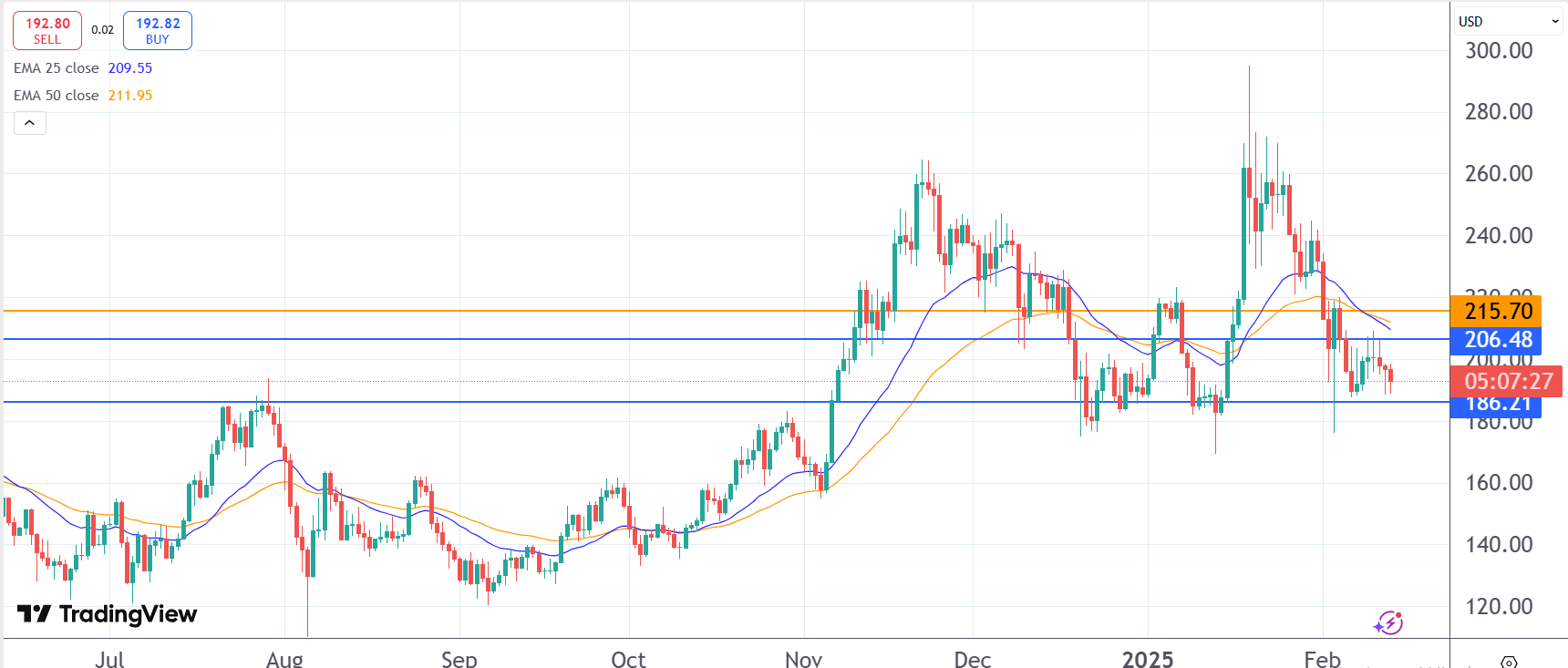Key takeaways
- Michigan has joined the wave of other states in the U.S. looking to invest in cryptocurrencies.
- Bitcoin Pepe’s presale approaches $2m two days after launch.
Michigan proposes crypto investments
More states in the United States are looking to invest in cryptocurrencies. Michigan’s state representatives, Bryan Posthumus and Ron Robinson, proposed House Bill 4087 to allow the state to invest in Bitcoin and other cryptocurrencies.
If the bill is approved, the state treasurer can allocate up to 10% of Michigan’s general and economic stabilization funds to cryptocurrencies. Michigan joins a wave of other states in the U.S. proposing to invest in cryptocurrencies.
What is Bitcoin Pepe?
With Michigan and other states looking to invest in cryptocurrencies, Bitcoin will likely top the list as it is the number one crypto by market cap. Bitcoin Pepe is leveraging Bitcoin’s position in the market to introduce memecoins to its ecosystem.
It is a layer-2 network building on the Bitcoin blockchain. Bitcoin Pepe is a meme-specialized layer-2 solution built on top of Bitcoin, bringing Solana-style scalability to the Bitcoin network.
According to the whitepaper, Bitcoin Pepe is designed to become ground zero for all memecoin trading and move all this economic activity to the BTC ecosystem. This project will unlock DeFi and meme trading on top of BTC. The team describes Bitcoin Pepe as the perfect fusion between BTC’s security and the unstoppable force of memecoins.
The team added that Bitcoin Pepe is the first-ever meme initial coin offering (ICO) on the Bitcoin blockchain. With this, BTC Maxis will be able to trade memes, and combining high levels of trust (BTC) with high levels of performance (SOL) will lead to high levels of retail mass adoption.
How can Bitcoin Pepe advance the Bitcoin ecosystem?
Bitcoin is the oldest blockchain in the ecosystem but offers less utility than smart contract blockchains like Ethereum and Solana. However, Bitcoin Pepe plans to open up the blockchain further by allowing the launch of memecoins and other narratives on the network.
By ushering in memes on Bitcoin, Bitcoin Pepe will turn the blockchain into the home base for the crazy high-octane meme experience. The team believes the BTC bridge will unlock $2 trillion in dormant BTC capital and make it available for memecoin trading.
Bitcoin Pepe will launch as a Layer-2 network, providing the necessary infrastructure for all memes to migrate to BTC and ensuring security and liquidity for investors and users.
Bitcoin Pepe presale raises $2m in two days
Bitcoin Pepe’s presale launched two days ago and is already close to a new milestone. According to their official whitepaper, the Bitcoin Pepe presale has raised $1,937,568 in just two days.
This isn’t surprising, as its native token, $BPEP, will power the Bitcoin Pepe layer-2 network and several other activities within the ecosystem. The presale allows investors to buy the tokens before they are listed on exchanges.
Investors can purchase the $BPEP tokens using various cryptocurrencies, including ETH, USDT, USDC, BNB, and SOL.
The presale could be an opportunity to purchase $BPEP at a discount. Solana’s SOL currently trades at $196 per coin. However, it was sold for $0.22 during its presale in 2020, indicating how early investors benefit from partaking in presales.
Bitcoin Pepe aims to be a leading L2 network on Bitcoin, offering users security and liquidity. In addition to that, it is leveraging the recent growth of memecoins to launch as one while working to introduce more memecoins to the Bitcoin ecosystem.
The post Michigan proposes investments in Crypto as Bitcoin Pepe’s presale nears $2m appeared first on CoinJournal.



